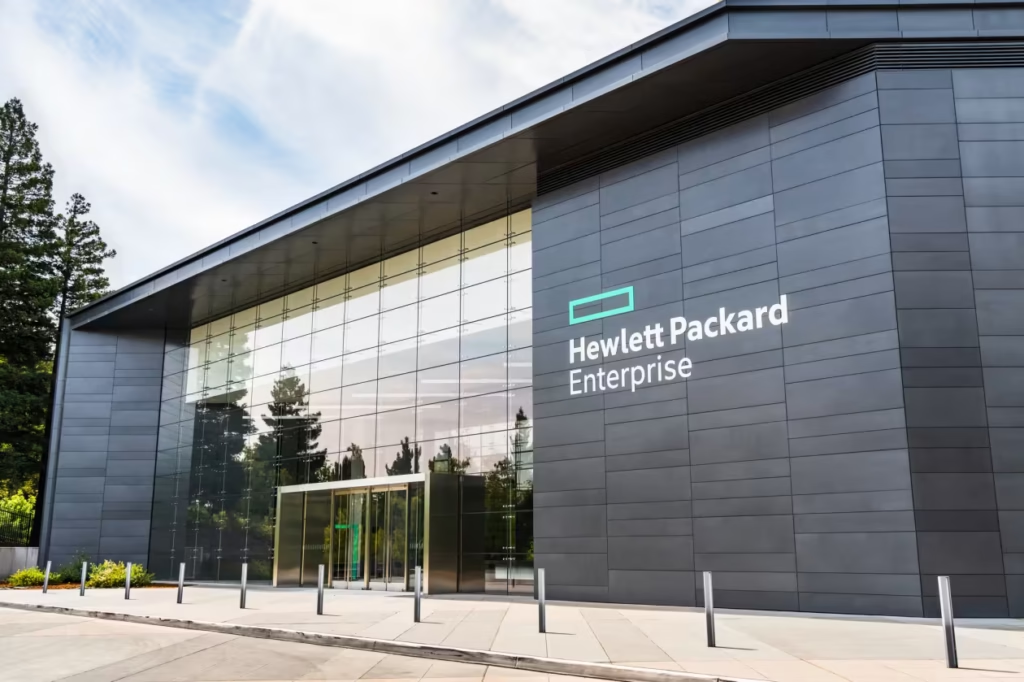Last quarter, HPE generated $1.6 billion in revenue from AI.
Although the last quarter’s record revenue from Hewlett-Packard Enterprise Co. exceeded Wall Street’s projections, the server and networking company’s shares were selling off somewhat on Wednesday after hours.
The offender? The sales prediction for the current quarter is probably going to be lower than expected. Despite being optimistic about the recently completed acquisition of Juniper Networks, Marie Myers, the Chief Financial Officer of HPE (HPE), stated that the business has adopted a cautious approach to its projections due to the difficulties involved in closing such a significant deal.
For the fiscal fourth quarter, HPE projects sales of $9.7 billion to $10.1 billion, which is less than the FactSet consensus of $10.1 billion at the halfway point. In addition, HPE projects adjusted earnings per share for the period to be between 56 and 60 cents, whereas analysts were expecting 56 cents.
After-hours trading on Wednesday saw a 1.5% increase in shares.
The demand for AI servers benefited HPE’s success in the most recent quarter. In the quarter, the company generated $1.6 billion in AI revenue, including a significant and competitive agreement with a major AI “model builder.” The backlog for the corporation was $3.7 billion.
“Not only are we shipping and recognizing new revenue, but we are incrementally adding new customers,” Myers stated.
According to Myers, the backlog also demonstrated the company’s increasing popularity with enterprise and sovereign clients. Compared to deals with “model builders” or hyperscalers, which are typically lumpier and more competitive, deals with these types of customers offer a more appealing profit profile.
“Enterprise and sovereigns tend to be a more consistent, steady stream of business,” Myers stated.
For the fiscal third quarter, HPE’s total revenue was $9.1 billion, which was 19% more than the previous year and higher than the $8.8 billion FactSet consensus estimate. Analysts had been projecting an EPS of 41 cents, while the actual number was 44 cents.
Despite being down 190 basis points from the previous year, HPE reported an adjusted gross margin of 29.9% for the period, which represented a 50-basis-point rise on a sequential basis.
The business has experienced a sequential improvement in certain aspects of its operations, such as networking, and has “largely” resolved some operational challenges that beset it earlier in the year. Additionally, HPE has an internal initiative designed to increase efficiency.
In the meantime, Myers claims that the expectation of cost synergies played a major role in its acquisition of Juniper. She now believes that the transaction will “transform this company” by providing it with full-stack offerings that will support its data-center business, even though customers had “been waiting in anticipation” for it to close.





